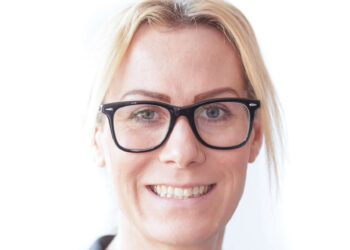While the recent Diversity in Tech report from the Tech Talent Charter shows how far the industry has come, one important aspect of DE&I appears to have been forgotten: social mobility.
Just 9% of people in the tech industry come from a low socioeconomic background, compared with 39% of the UK population, the report states. So, whilst we have been making progress across all other areas, social mobility continues to let the side down.
Does this mean the industry is too elitist? Or are tech companies simply failing to measure their employees’ social demographics properly?
It is a bit of both.
Whilst there is a rise in the privately educated and more privileged taking apprenticeships (which were initially designed for the working classes), there is also a high number of talented and successful individuals who have either hidden their upbringing or have been bundled in with one of the other DE&I categories. Whilst all areas of DE&I are essential, coming from a low socioeconomic background has often been the cause of people’s challenges, as opposed to their gender, race, ethnicity or sexual preferences. It can also be the one thing that connects people across all other groups.
Some of the most successful, humble, grateful, loyal, and honest people I have had the privilege of getting to know across the industry (personally or through the Channel Community), have come from low socioeconomic backgrounds. Yet, some, like me, have tried their best to hide this to fit in with the predominately white, middle-class, and often elitist industry.
We have also come a long way to narrow the gender pay gap, yet the class pay gap impacts people from a low socioeconomic background pay more than gender. I didn’t even know this existed until I was made aware of it by the social mobility powerhouse, Toni Kent.
The Class Pay Gap, produced by the Social Mobility Foundation, highlights that despite working in the same occupations, people from low socioeconomic backgrounds are paid, on average, 12% less than those from professional-managerial backgrounds.
Professional women from working-class backgrounds are hit with a double disadvantage. The class pay gap increases to 16% between women from working-class and professional-managerial origins in the same occupation and between male and female workers.
As soon as I became aware of the class pay gap, I reviewed my career and realised I had been significantly impacted. When I mapped my 30-year career, the main differences came at the start, when I was an apprentice. Even after being taken on permanently and promoted to a senior position at a young age, I was still paid considerably less than my counterparts. The pay gap then evened out until I rose to positions in tech and senior leadership, when the gap widened even further.
I mainly put this down to two things. One, the companies took advantage of my lack of education and entry point into the corporate world through an apprenticeship and two, I didn’t value myself in the same way as my more privileged colleagues. As I have never been driven by money, and was so grateful to earn the money I was on, I didn’t ask for what I was worth.
I recently co-hosted a People and Culture event with Sarah Long, Chief People Officer at Computacenter. The event was built and led by a fantastic woman called Jaspreet Chandra, who works in Sarah’s team, comes from a low socioeconomic background herself, and shares my passion for social mobility. So, to improve the stat that the Tech Talent Charter published and to raise more awareness of what people can do to improve social mobility in the channel, I invited Sarah Atkinson, the CEO of the Social Mobility Foundation, to present.
As part of Sarah’s presentation, she shared that according to a report from the Social Mobility and Child Poverty Commission produced in 2015, a low-ability child from a high-income family is 35% more likely to be a high-earner than a high-ability child from a low-income family.
This tells me that companies are happy to pay people from privileged, high-income families a lot more than top talent from the working classes.
That explains why people of average or low ability in our industry earn thousands more than their peers from a low socioeconomic background; it certainly helps me understand how I have been impacted.
Talent is everywhere, but opportunity is not. The industry is crying out for new talent and here is an untapped talent pool, desperate to be allowed to prove themselves and be high performers. You may not get someone “polished”, but you will get individuals with a great work ethic, drive, resilience, gratitude and loyalty, all traits consistently in this demographic.
Several very successful people at the same event were also from a low socioeconomic background but, like me, were trying to hide it. You can’t be what you can’t see, so rather than trying to hide your upbringing and ‘fit in,’ be proud of who you are and where you came from and show others the way.
I am living proof that where you start doesn’t dictate where you finish, and with the right drive, mindset, and determination, you can achieve anything you want.
If you want to know more about the great work the Channel Community and the Social Mobility Foundation are doing to drive positive change, contact us.















